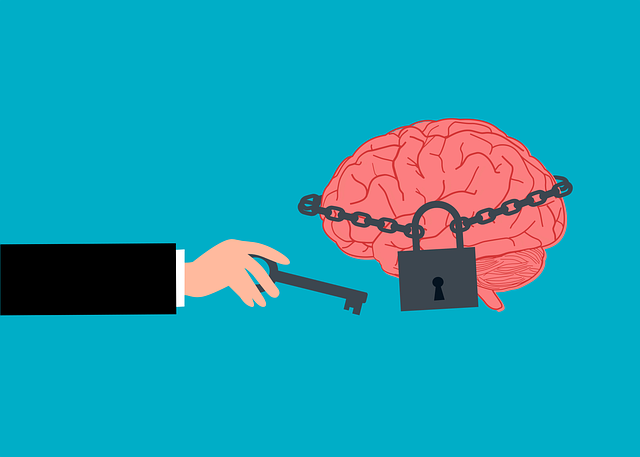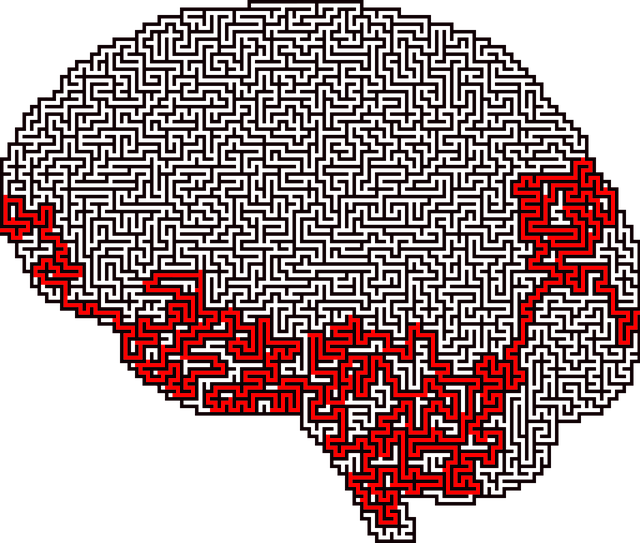In the German-speaking market, there is a growing demand for mental wellness apps tailored to children due to increasing awareness of mental health issues and changing societal attitudes. These apps offer accessible therapy through mindfulness exercises and cognitive behavioral therapy, enhancing traditional care with risk assessment and early intervention. When designing such apps, cultural sensitivity is crucial, incorporating age-appropriate features like interactive games and storytelling, personalized sessions for various age groups, and cultural references. Focusing on depression prevention and resilience building among German-speaking users requires understanding local societal norms, integrating relevant traditions, and addressing specific concerns such as work-life balance. Effective app development involves a blend of cultural sensitivity, interactive design, robust security measures, and strategic partnerships with local community organizations to boost adoption and reach families in need.
The importance of mental wellness among children is growingly recognized, particularly in the German-speaking market. This article explores the development of therapy apps tailored to address this need. We delve into key considerations such as defining app features, incorporating cultural sensitivity, and ensuring user-friendliness. Additionally, we discuss marketing strategies to reach children and their families, focusing on the unique landscape of mental health support for kids in the German-speaking region. By leveraging technology, these apps aim to provide accessible and effective therapy options.
- Understanding the Need for Children's Mental Health Apps in the German-Speaking Market
- Defining Features and Functions for a Therapy App Targeting Kids
- Incorporating Cultural Sensitivity: Tailoring Content for German-Speaking Users
- Technical Considerations for Developing a User-Friendly and Effective App
- Marketing and Distribution Strategies to Reach Children and Their Families
Understanding the Need for Children's Mental Health Apps in the German-Speaking Market

In the German-speaking market, there is a growing recognition of the importance of addressing children’s mental health concerns, mirroring a global trend in mental wellness app development. The need for specialized therapy for children in this region is becoming increasingly evident due to rising awareness campaigns and a shift in societal attitudes towards mental health issues. Many families are seeking innovative solutions to support their children’s emotional well-being, particularly with the impact of modern life presenting new challenges.
Children’s mental health apps offer a promising approach to reaching a wider audience and providing accessible therapy. With advanced technology, these apps can utilize various techniques for emotional well-being promotion, such as mindfulness exercises and cognitive behavioral therapy, tailored specifically for younger users. Moreover, they can serve as valuable tools for risk assessment and early intervention, benefiting from the expertise of mental health professionals through digital platforms, thus enhancing traditional care methods.
Defining Features and Functions for a Therapy App Targeting Kids

When designing a therapy app targeting German-speaking children, it’s crucial to define features and functions that cater to their unique needs and developmental stages. Incorporate engaging elements like interactive games and storytelling to facilitate emotional expression and coping mechanisms in a child-friendly manner. The app should offer personalized therapy sessions tailored for different age groups, addressing common issues such as anxiety, stress, or social difficulties.
Cultural sensitivity is paramount in mental healthcare practice, especially when developing tools for children from diverse backgrounds. Incorporate cultural references and perspectives into the app’s content to ensure it resonates with German-speaking kids. This can include incorporating traditional stories, holidays, and values, which not only enhances engagement but also fosters a sense of belonging and acceptance. Additionally, consider integrating mental wellness coaching programs that focus on depression prevention, as early intervention is key in promoting resilience and overall mental wellness.
Incorporating Cultural Sensitivity: Tailoring Content for German-Speaking Users

When developing a mental wellness app aimed at German-speaking users, incorporating cultural sensitivity is paramount. It’s crucial to understand and respect the nuances and values within this specific cultural context. Therapy for children in Germany, for instance, often involves different approaches compared to other countries due to variations in educational systems and societal expectations. Therefore, tailoring content to resonate with German-speaking audiences is essential. This includes incorporating references to local traditions, family structures, and any unique challenges they may face.
For example, an app designed for anxiety relief might include exercises that address common German concerns such as work-life balance and burnout prevention strategies for healthcare providers—a pressing issue in their culture. By doing so, the app becomes more than a tool; it fosters cultural sensitivity in mental healthcare practice, ensuring that users feel understood and supported on a deeper level.
Technical Considerations for Developing a User-Friendly and Effective App

When developing a mental wellness app with a focus on therapy for children in German-speaking regions, several technical considerations come into play to ensure user-friendliness and effectiveness. The first step involves understanding the specific needs and challenges of the target audience, including cultural nuances and age-appropriate content. Incorporating features that cater to different learning styles and offering interactive elements can significantly enhance engagement, especially for younger users. For instance, integrating gamification techniques or visual aids can make therapy sessions more accessible and enjoyable.
Additionally, the app should prioritize data security and privacy, given the sensitive nature of user information. Implementing robust encryption methods and adhering to relevant data protection regulations, such as those specific to German-speaking countries, is crucial. Facilitating seamless communication between users and mental health professionals through secure messaging or video conferencing capabilities further enhances the overall user experience. Furthermore, integrating stress management workshops or trauma support services within the app can provide valuable resources, allowing users to access immediate assistance and support whenever needed.
Marketing and Distribution Strategies to Reach Children and Their Families

Reaching children and their families with mental wellness apps requires a strategic marketing and distribution approach. One effective method is to partner with German-speaking therapy centers, schools, and community organizations that already have established relationships with families. Leveraging their trust and infrastructure can significantly boost app adoption. Additionally, targeting specific events like parent-teacher conferences or health fairs dedicated to child well-being can create awareness and generate interest among parents.
Digital marketing strategies such as social media campaigns focusing on German-speaking communities, influencer partnerships with mental health advocates, and targeted online ads can effectively reach children and their families. Offering localized content, including resources tailored for German-speaking users, will enhance the app’s appeal and usability. Promoting features like stress management tools, burnout prevention techniques, and emotional well-being promotion can attract users seeking support for themselves and their children.
The development of mental wellness apps, specifically tailored for children in the German-speaking market, is a timely and crucial initiative. By addressing the growing need for accessible therapy options, these apps can significantly improve the mental health landscape for kids. Incorporating cultural sensitivity and user-friendly design elements ensures that the app resonates with German-speaking users. With careful consideration of technical features and effective marketing strategies, there is immense potential to reach and support children and their families, offering a much-needed digital solution for therapy in this region.








